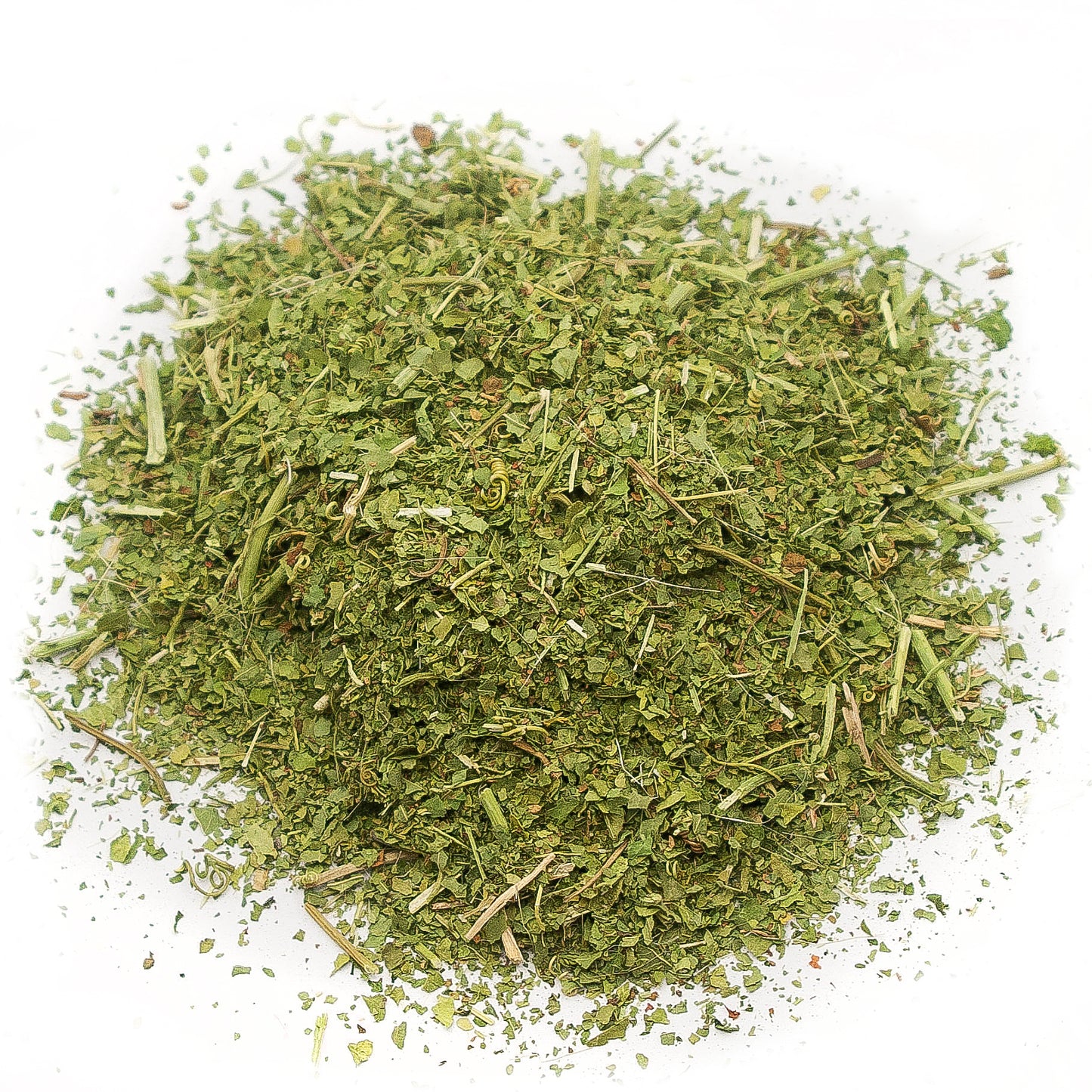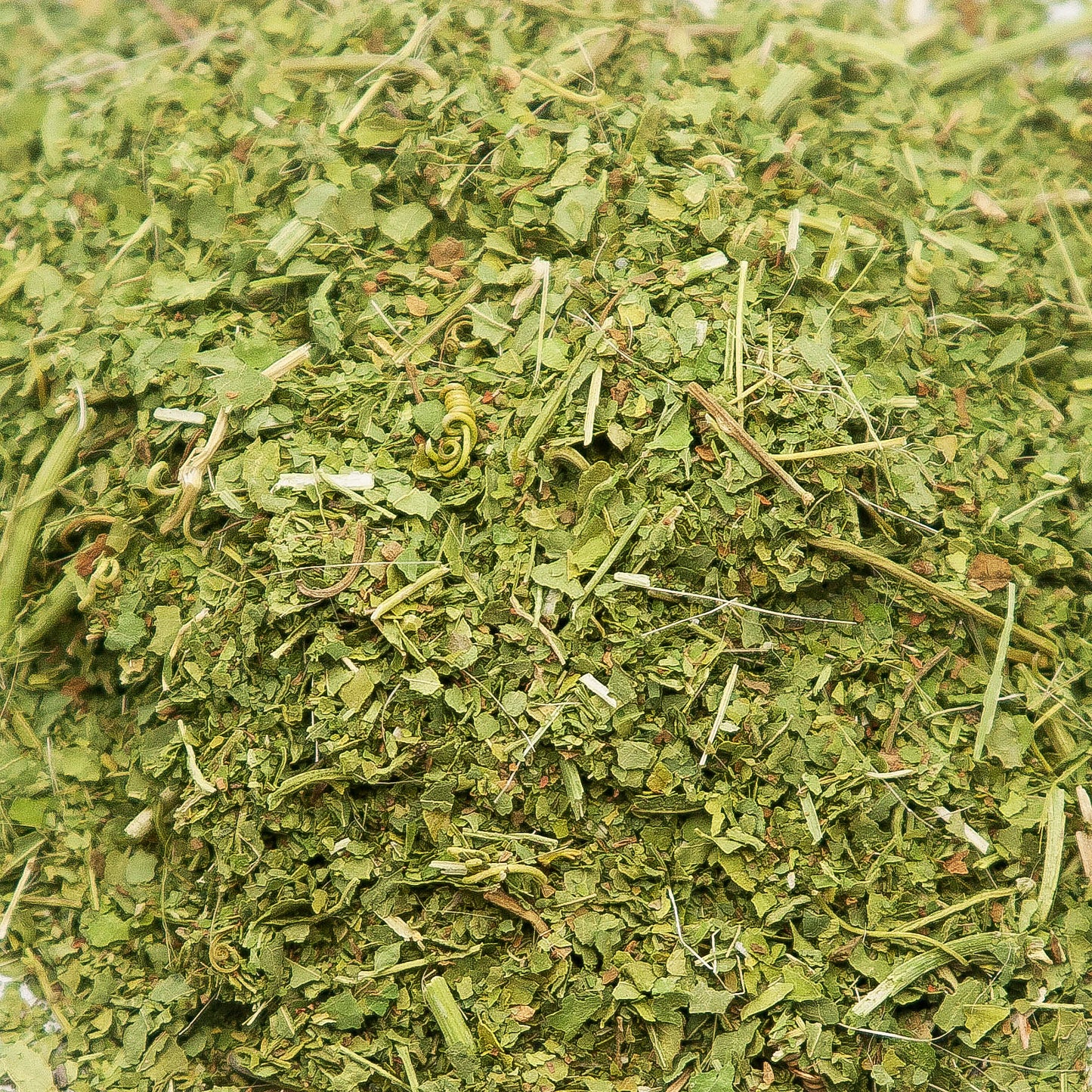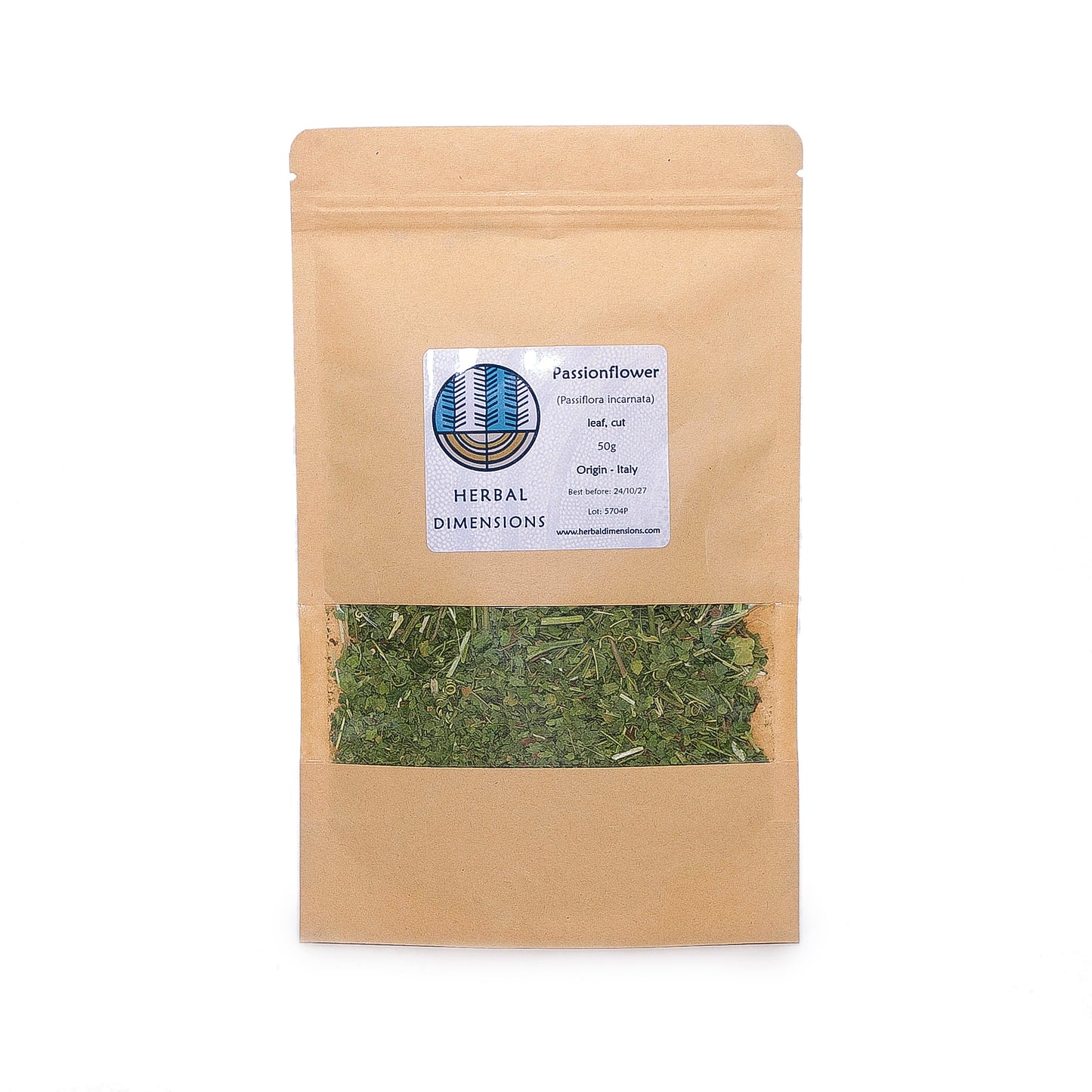Herbaldimensions.com
Passion Flower (Passiflora incarnata)
Passion Flower (Passiflora incarnata)
Couldn't load pickup availability
Share
Common Name: Passionflower
Botanical Name: Passiflora incarnata
Origin:
Part: Leaf & Stem
Form: Cut
Passionflower (Passiflora incarnata) is a perennial climbing vine native to the southeastern United States and Central and South America, celebrated for its striking white and purple flowers. Traditionally, passionflower has been valued for its calming properties and is commonly used to support relaxation and help ease occasional stress. The plant has a long history of use in herbal practices, where it is often recommended to promote a sense of tranquility and support restful sleep.
Botanically, passionflower is known for its intricate blossoms and vigorous growth. The flowers gave rise to the name Passionflower because Spanish missionaries thought they represented some of the objects associated with the crucification of Christ. It belongs to the Passifloraceae family and is sometimes referred to as maypop, maracuja, or water lemon. The above-ground parts of the vine are typically harvested and dried for use in herbal preparations.
This gentle herb is a popular choice for those seeking a natural way to nurture emotional well-being and relaxation as part of a balanced lifestyle.
Passionflower can be drunk as a tea (infusion) or made into a tincture or put into capsules.






